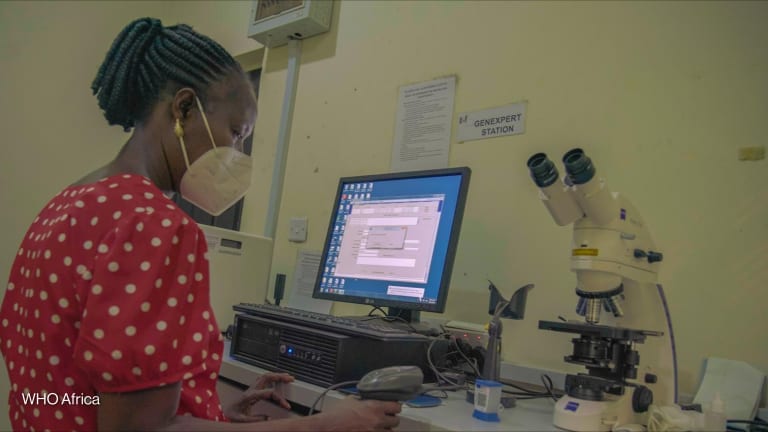
Most development professionals understand that data analysis can help them do their jobs better.
In theory, it sounds great. But in practice, how should one go about kick-starting or ramping-up data-driven decision-making?
Devex asked a handful of experts for suggestions. Here are five of the best of their tips:
1. Get started now and keep it simple.
Don’t wait. Start now. Adjust later. Data collection and analysis are more like building out a website than a writing book. You can always tweak a website, but once a book is in print, it is what it is.
“Get started,” said Colleen McLaughlin, director of client delivery at the BroadReach, a South African-based firm that provides data-related solutions in emerging markets. “People want to wait until the data is perfect.”
If you don’t yet have reliable in-house data, use what’s available in the public domain.
“There are some good data sources that you can and should leverage,” said Philip Beaver, professor of business information and analytics at the Daniels College of Business of the University of Denver. He cited World Bank reports, the CIA Factbook, Google Sky, and online phone books as examples.
“There is a myth that there’s no data,” said McLaughlin. “A lot of it tends to be siloed, and there are gaps.”
And “don’t try to boil the ocean,” she added, by collecting more data than you need. Define your key questions and figure out what data you need to answer them.
2. Use data to design programs — not just to measure progress.
Beyond the dashboard: Data for decision-making
Data will be crucial to achieving the Sustainable Development Goals. Many development organizations are beginning to make more sophisticated use of data and analytics in their decision-making, but more progress is needed. A #DataDriven Week Three feature.
Pull in data from the outset to help design programs and determine the criteria you want to use to define success, said Amir Bagherpour, chief political scientist and founding partner of U.S. analytics company GiStrat. If you use data only for monitoring and evaluation, “it is analogous to buying a stock” without pre-evaluation and only tracking its subsequent progress.
Nobody would buy stock in a company without “anticipatory analysis” to decide if it were a good buy, Bagherpour noted. Development organizations also need to use data to understand what they are buying into.
But measuring progress remains important — if you can accurately demonstrate progress, donors will listen. Do this by using baseline data. To measure progress, you need to know where you started.
3. Provide benefits for and get support from key stakeholders.
Top-down data initiatives will not work, noted Jim Fruchterman, CEO of Benetech, a nonprofit software developer for the social sector.
Information must come from and be utilized by the community and field workers. If they think something isn’t useful or helpful to them, they won’t go along. And data collection and analysis won’t go anywhere.
“When the staff sees that it is not helping them, they will resist,” noted Fruchterman.
“The challenge is to help village leaders understand the notion that they can measure progress,” said James Mayfield, CHOICE Humanitarian co-founder and professor emeritus in public administration and Middle East studies at the University of Utah.
Beaver warned against excessive reporting requirements, such as those that killed one microfinance scheme because nobody on the ground could provide the information that headquarters demanded. The academic also suggested that organizations “make it part of your [routine] to be collecting data.”
4. Focus on your core mission and forge partnerships for the rest.
One lesson from the private sector that nonprofits routinely ignore is to work together on non-core things and focus your resources on what you do best.
Far too many nonprofits spend far too much money and resources developing custom data crunching tools, said Fruchterman. In the business world, like-minded companies use the same back end technology and save their energy to compete at what they are really good at.
NGOs should therefore join forces to create tools that all like-minded groups can use.
There’s a model for this: A few years ago a few dozen environmental organizations, foundations and institutions, including big names such as Conservation International and World Wildlife Fund, joined together to form the Conservation Measures Project. The idea was to create a common project management platform for conservation projects — just as companies would in the construction industry, for example.
The program called Miradi (a Swahili word meaning “project” or “goal”) is available online under an open standards protocol. The basic structure is the same, allowing organizations to tweak it for particular needs.
5. Present the results in a way that ensures that they will be used.
If people don’t get readouts in ways that make sense to them, they won’t use the analytics — no matter how great those outputs might be. Make sure to present results in different ways that are oriented to each of your potential key audiences.
“The data is only as good as the use they are put to,” said McLaughlin. If you only go “for the geeks” in your presentations, others will not understand. It’s therefore essential to present the data in terms appropriate for each individual audience, she stressed.
Do you have any tips for making data-driven decision-making work? Have your say by leaving a comment below.
With potential to change the trajectory of crises, such as famines or the spread of diseases, the innovative use of data will drive a new era for global development. Throughout this monthlong Data Driven discussion, Devex and partners — the Agence Française de Développement, BroadReach, Chemonics and Johnson & Johnson — will explore how the data revolution is changing our approach to achieving development outcomes and reshaping the future of our industry. Help us drive the conversation forward by tagging #DataDriven and @devex.








